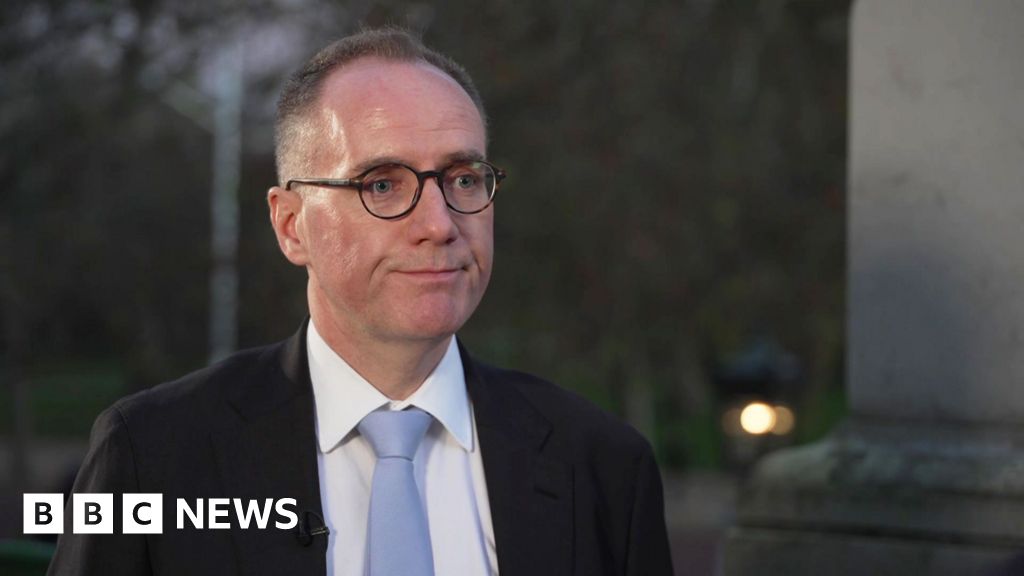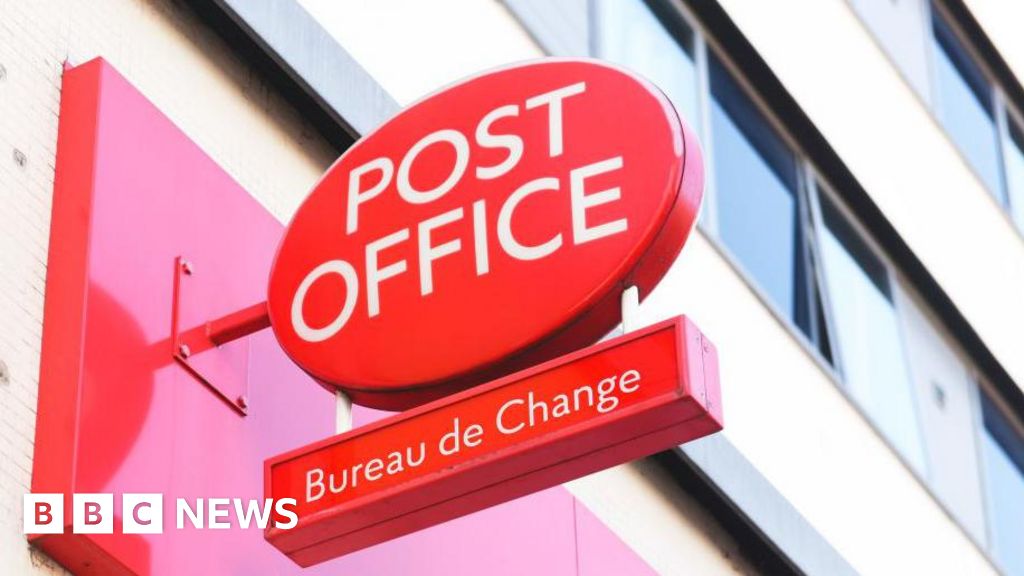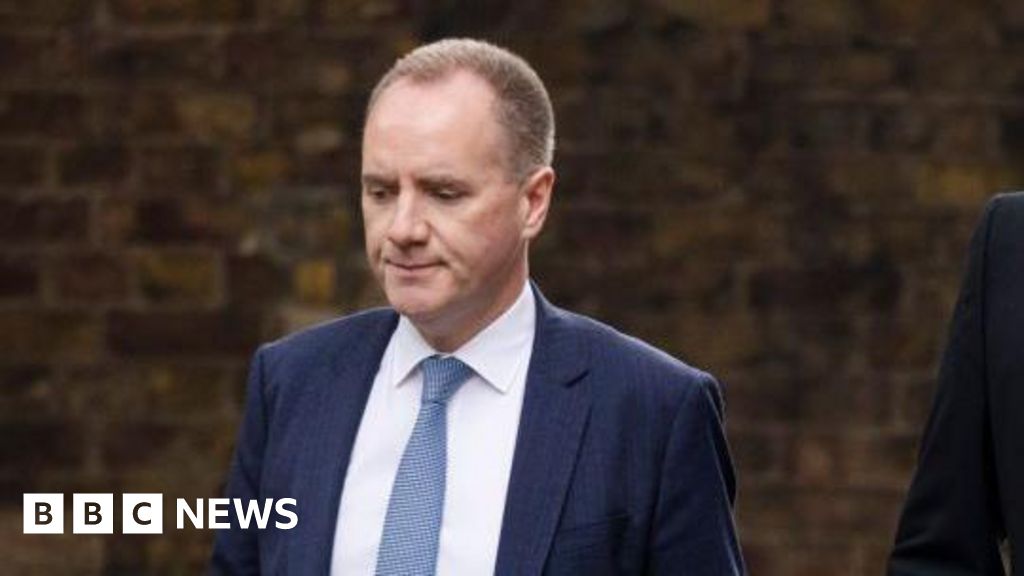A new chapter in the history of the Grand Ethiopian Renaissance Dam (GERD) began with its official inauguration on September 9, 2025. The outlines of the new landscape were clear when Ethiopian Prime Minister Abiy Ahmed declared at the dam’s inauguration ceremony that “To our brothers, Ethiopia built the dam to prosper, to electrify the entire region, and to change the history of black people”. Addressing Egypt and Sudan, “It was certainly not built to harm our brothers”. Egypt expressed grave concern about the dam’s full operation without a binding agreement, asserting that this unilateral action threatens its water and food security. What is the significance of this historic milestone? We are currently confronted with a new geopolitical and economic reality, as the dam has materialized with an installed capacity of 5,150 megawatts. This development introduces novel challenges for Egypt and Sudan, necessitating a comprehensive re-evaluation of their strategic approaches to adapt to the altered circumstances.
The Ethiopian dam marks the beginning of a new phase in crisis management, where the conflict has shifted from preventing construction to dealing with the status quo. Here, new concepts prevail in post-crisis management, with attempts to minimize damage and maximize gains from the new situation.
The Globalization of the GERD Issue
The most prominent option for Egyptian diplomacy to address Ethiopian resistance over the GERD was to submit formal complaints to the UN Security Council, considering the crisis a threat to international peace and security, in accordance with Articles 34 and 35 of Chapter VI of the UN Charter. It means Egypt preferred peaceful procedures for resolving international disputes, including negotiation and mediation, followed by referral to the Security Council. According to Chapter VII, the Council can investigate whether the problem threatens global peace and security. Under Chapter VII, the Council can ultimately impose peace and issue binding, enforceable resolutions.
Egyptian diplomacy may seek to leverage international legal forums by submitting formal objections to the African Union (AU), the United Nations (UN), and the International Court of Justice (ICJ) regarding violations of international river agreements. As discussed in my work ‘Egypt’s Water Policy‘, I asserted that the Entebbe Agreement violates fundamental principles of transboundary water law and disregards established treaties, a position likely to gain support from international bodies. The Entebbe Agreement, also known as the Nile Basin Cooperative Framework, was signed in 2010. However, it was rejected by Egypt and Sudan, leading to their suspension from the Nile Basin Initiative. It came into force in September 2024 following South Sudan’s ratification. The primary objections centered on its provisions for redistributing water resources and allowing upstream states to implement water projects without the consent of downstream countries.
The suitability of the ICJ or other legal forums for resolving transboundary water disputes remains uncertain. First, these forums require the consent of both parties for their compulsory jurisdiction to apply. Second, while Article 94 of the UN Charter allows for recourse to the Security Council if a party ignores a final ruling, there is no similar procedure for provisional measures issued by the court.
What prompted Egypt to seek intervention from the Security Council again in September 2025? The underlying answer lies in the pronounced deadlock that has characterized negotiations among the three parties involved. Each party remains steadfast in its position, vehemently refusing to make even minimal concessions. This dynamic is underpinned by the dominant paradigms of zero-sum rivalry, red lines, and paramount national interests, which imbue the negotiation process with conflicting values and ideological considerations. These negotiations, including those convened under the auspices of the AU and during the first term of U.S. President Donald Trump, have repeatedly demonstrated fundamental disagreements over core principles, rendering them ostensibly futile or akin to a ‘dialogue of the deaf’. From Egypt’s perspective, Ethiopia has disregarded previous agreements, notably the 2015 Declaration of Principles, asserting that its plans for the dam’s completion and operation remain unaffected. Such developments suggest that the situation can be effectively analyzed using game theory, specifically the Chicken Dilemma, a conceptual framework that offers valuable insights into the strategic stalemate and potential avenues for resolution.
Numerous scholars and policymaking institutions have endeavored to apply the Chicken Dilemma, sometimes referred to as the Falcon and Dove model, to the Nile water crisis, particularly focusing on the GERD. A critical question thus emerges: have we truly reached the worst-case scenario within this strategic framework? This may lead to a violent confrontation over the water.
Water Wars
With diplomatic efforts exhausted and considering that the water issue is a matter of life or death for Egypt, the military option may become a possibility that cannot be ruled out. President Donald Trump has stated more than once that Egypt will blow up the Ethiopian dam. It is well known that the Nile River is vital to Egypt, as all agricultural, industrial, and domestic activities depend primarily on this source. Due to this fact, all Egyptian governments are concerned about the possibility of obstructing or preventing the flow of the river water before it reaches Egyptian lands. The Nile was a symbol of life for the ancient Egyptians, as evidenced in the ‘Song of the Nile’, a hymn dating back to a distant period of their history. The hymn says:
Hail to thee, O Nile! Who manifests thyself over this land and comes to give life to Egypt. Mysterious is thy issuing forth from the darkness, on this day whereon it is celebrated! Watering the orchards created by Re, to cause all the cattle to live, you give the earth to drink, inexhaustible one!.
In modern times, the importance of the Nile and its vital status have also been emphasized, particularly in Egyptian political thought. President Anwar Sadat declared that water is the only issue that could push Egypt into war highlighting the shifting dynamics of the Arab-Israeli conflict following the 1979 Camp David Accords. Furthermore, Boutros Boutros-Ghali, the former Secretary General of the UN, is often quoted regarding the Nile River and the issue of war: “The next war in our region will be about the waters of the Nile, not politics.”
On the other hand, Ethiopia, one of the poorest countries, aspires to generate hydroelectric power to support development and earn foreign exchange by selling it to neighboring countries. The GERD symbolizes Ethiopian pride and is almost universally recognized. The GERD is often associated with the historic Battle of Adwa in the Ethiopian public imagination. On March 2, 1896, Ethiopian forces defeated the better-equipped Italian colonial army at Adwa, in northern Ethiopia. Through this landmark victory, Ethiopia preserved its independence amid the European ‘Scramble for Africa’. Ethiopian literature has also transformed Adwa into a symbol of liberation and freedom for all Black people globally. Ethiopia’s current political leadership has not ruled out the military option and has declared its readiness to defend the GERD if attacked.
As a result, the issue of water, including its equitable distribution and usage, has become a matter of national security for both Egypt and Ethiopia. This situation raises the possibility of miscalculations and a violent conflict perspective, although such an option would be irrational and destructive for all parties involved. In March 2020, the Ethiopian Chief of Staff, Lieutenant General Adam Mohamed, stated that the army was prepared to resist any attack on the GERD. However, comparing the military capabilities of Egypt and Ethiopia reveals an unfavorable situation for Ethiopia. According to the 2025 Military Strength Index by Global Fire Power, Egypt ranks 19th globally, just behind Australia, and possesses the most powerful army in Africa. In contrast, Ethiopia ranks 52nd. Therefore, resorting to military action remains unlikely due to the significant diplomatic and regional repercussions it would entail, which could further complicate the matter.
Escalation Contingency Plans
Egyptian policymakers may alternatively pursue a strategic containment approach to limit Ethiopian influence across the Horn of Africa and the broader Nile Basin region. Given the disputes surrounding the Entebbe Agreement and the GERD project, any escalatory approach must consider the substantial geopolitical implications and the heightened risk of precipitating wider regional instability.
First, Egypt’s cultivation of strategic partnerships in the Horn of Africa, most notably its security agreement with Somalia, serves as a mechanism for exerting indirect military and political influence on Ethiopia without overt armed confrontation. By leveraging alliances with Eritrea, Djibouti, and Somalia, Egypt positions itself within a regional security architecture that can deter unilateral Ethiopian action and reinforce Egyptian concerns regarding GERD operations. Second, both states’ membership in the AU and BRICS provides avenues for diplomatic leverage that fall short of military escalation. Egypt’s active role in AU peacekeeping missions and its engagement with the BRICS framework afford multilateral forums to signal resolve, mobilize institutional pressure, and encourage a negotiated settlement, thereby avoiding the unpredictable consequences of inter-state armed conflict. Finally, Ethiopia’s recent port‐access agreement with Somaliland, granting Addis Ababa direct Red Sea outlets, reshapes the strategic calculus by enhancing Ethiopia’s power projection capabilities. In response, Egypt can exploit its security cooperation with Somalia to contest Somaliland’s autonomy claims and impede Ethiopia’s maritime ambitions, thereby creating a form of strategic friction that avoids conventional warfare.
These measures constitute a calibrated escalation contingency plan that balances deterrence, diplomatic engagement, and indirect pressure to manage the GERD dispute within acceptable risk thresholds.
A Negotiated Deal
The best option for Egypt to address the GERD crisis is to pursue a negotiated agreement with Ethiopia and Sudan. In this context, international river basins like the Nile are commonly governed through treaties between riparian states, which, although inherently rigid, serve as essential frameworks for cooperation. Egypt’s diplomatic approach should emphasize the necessity of developing a joint institutional mechanism to manage shared water resources, enabling adaptable and cooperative responses to changing conditions such as development needs, population growth, and climate change.
What are the methods to address changing climate patterns? Climate projections for the Nile Basin following the GERD’s inauguration indicate a continued increase in average annual temperatures, exacerbating reservoir evaporation losses. Anticipated variability in precipitation patterns will further influence the river’s discharge and overall basin water availability. Considering this hydrological uncertainty, operational protocols for the dam must incorporate adaptive flexibility. Consequently, post-inauguration water-share agreements and operating rules should include multiple scenario-based alternatives to accommodate flood-season surpluses, dry-season deficits, and episodic severe droughts.
For instance, Flooding in Egypt’s northern governorates in early October 2025 heightened regional tensions. Cairo accused the GERD, which altered the course of the Nile River and submerged farmland and homes in some areas of Egypt. Sudan has also faced Nile flooding, displacing hundreds in Khartoum. However, Addis Ababa rejects Cairo’s claims, arguing that the GERD mitigated flooding downstream and played a key role in mitigating what could have been a catastrophic surge. It is possible to envision three approaches for reaching a negotiated agreement among the three Nile Basin countries, particularly in addressing issues related to drought, development, and population growth, as follows:
First, there is a need to complete confidence-building measures, implement the principle of good faith among the three negotiating parties, and agree to establish institutional procedures to avoid unintended future risks. Perhaps one of the primary sources of risk is the lack of an independent and acceptable mechanism to monitor the agreement’s implementation. For example, how can the agreement be amended in light of changing circumstances or a deadlock in the views of the parties? Research shows that climate change will increase the frequency of hot and dry years in the Nile Basin, likely reducing the volume of water flows in the Nile Basin. The GERD itself also requires further studies to assess its environmental impact, which could identify contingencies related to water flow disturbances, sedimentation, and evaporation. Given the many uncertainties, a final agreement on a water-sharing formula is likely to have unforeseen future repercussions.
Second, ideally, the agreement should be comprehensive enough to provide a cooperative framework for managing the GERD and other potential projects on the Nile. In this case, international standards for transboundary water management could be relied upon, and other successful experiences could be learned. In this context, it may be helpful to review and amend the Nile Basin Initiative’s Comprehensive Framework Agreement, which Egypt and Sudan continue to object to, so that it can serve as the basis for a future comprehensive agreement among all Nile Basin countries. This collective approach ensures several advantages from a cooperative perspective, including:
The existence of a joint institutional mechanism to coordinate and implement agreements related to future projects, such as the GERD. Engineering and mathematical frameworks can be designed to accommodate responses to unforeseen changes, including coordinating future projects and climate change. The scope and terms of future Nile management, conservation, or development initiatives can be defined in advance. The legal and moral legitimacy of the agreement will be built on the principle of shared rights and responsibilities of all Nile Basin countries, without prejudice to the rights of downstream countries.Third, how can the stalemate in the GERD negotiations be addressed? The negotiating approach has proven ineffective and often seems to be one step forward, two steps back. The Trump administration’s initiative in 2020 has failed to achieve tangible progress toward a final agreement between the parties to the dispute. The 1999 Nile Basin Initiative was also unsuccessful due to the rejection by Egypt and Sudan. Despite this initiative, the political and legal issues surrounding water distribution and use remain unresolved. Given the difficulty of a military option, the lack of a shared border between Egypt and Ethiopia, and Sudan’s continued civil war, it is possible to explore outside-the-box negotiated solutions that rely on the role of international donors.
Can Ethiopia be compensated for the negative consequences of the drought mitigation releases scenario that does not harm Egypt’s water interests? A German research institute proposed that international donors, such as the United States, Europeans, and Gulf Arab states, consider the opportunity costs Ethiopia will incur, similar to the financial value of the electricity it will not be able to generate. Given the uncertain data situation, determining this opportunity costs will depend on political negotiations. Given the potential for climate variability, this compensation mechanism, which Egypt will not bear in any case, would provide flexibility in managing the reservoir. In rainy years, Ethiopia could retain more water than initially agreed upon, thus reducing compensation payments. On the other hand, this mechanism could repay Ethiopia during droughts when Egypt needs more water than planned. Such a compensation system would help manage how much water stays in the GERD reservoir.
Ethiopia’s ownership of the GERD does not exempt it from its international obligations, which include flexible reservoir management to avoid harming others, especially the downstream state, Egypt. Furthermore, Ethiopia could agree to release additional water from the GERD reservoir if the annual inflow is below a certain threshold, ensuring downstream countries receive sufficient water for their essential needs. Therefore, public media campaigns such as #ItsMyDam are merely part of the mobilization process and political balances prevailing in Ethiopia’s deeply divided and complex reality.
Ethiopia attempted to shift international mediation toward Africa to resolve the dam dispute when Abiy Ahmed requested the mediation of South African President Ramaphosa. Other Nile Basin countries have remained behind the scenes, closely monitoring the situation, particularly regarding the involvement of the US and the International Monetary Fund. Despite the principle of ‘African solutions to African problems’, the AU has no historical experience mediating highly sensitive issues, particularly conflicts over water resources. Member states of the African Peace and Security Council typically refrain from placing complex matters on the Council’s agenda. Any misstep would undermine the impartiality and acceptance of the AU in the minds of some member states.
Given its ability to develop capacity and share knowledge, the US is perhaps better positioned than South Africa as a mediator. It is also more capable of providing logistical support, and it is one of the key players outside Africa that can affect change in terms of water security in the region. American expertise, knowledge, and the ability to share technical data will be essential to the conflicting parties.
Ultimately, with the media campaigns halted and Ethiopia abandoning its unilateralist claims of ownership of the river, effective water diplomacy can transform the Nile from a source of conflict into a driver of cooperation and development for all people. The optimal solution we propose here can be reached in two stages: First, given that the GERD has been completed and inaugurated, the three countries must now agree on a flexible, technically supported operational framework for managing the dam’s releases to ensure adequate water flow to the two downstream countries during various hydrological conditions. In this context, leveraging modern digital water management and early-warning technologies through a joint real-time Nile water information platform can enable all parties to make timely, data-driven decisions for improved shared resource management. The second stage involves reconsidering the Nile Basin Initiative, which includes all other Nile Basin countries, to establish a long-term framework that allows Egypt and Sudan to join. This would clearly define the rights and obligations of upstream countries when dams are constructed or operated in the future and provide an institutional framework for addressing the inevitable impacts of climate change and population growth.
As I argued in my recent work, the long-term water security of Egypt fundamentally depends on balancing domestic innovation in water management technologies with robust regional diplomacy that transforms the Nile from a source of contention into a catalyst for shared prosperity. Egypt must lead by example, demonstrating that sustainable water governance and cooperative frameworks can safeguard national interests and regional stability for generations to come.

 Movie
Movie 1 month ago
97
1 month ago
97 




![Presidents Day Weekend Car Sales [2021 Edition] Presidents Day Weekend Car Sales [2021 Edition]](https://www.findthebestcarprice.com/wp-content/uploads/Presidents-Day-Weekend-car-sales.jpg)




 English (United States)
English (United States)